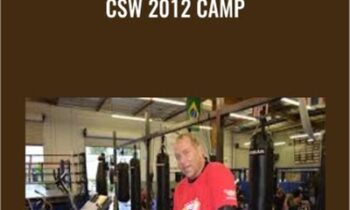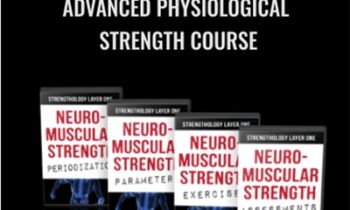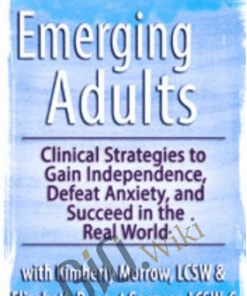$199.00 Original price was: $199.00.$59.00Current price is: $59.00.
Digital Download: You will receive a download link via your order email
Save up to 85% compared to Salepage prices. In addition, earn additional points. Save more on your next order.
Please contact email: wixzip.cs@gmail.com if you have any questions about this course.
 Purchase this course you will earn 59 Points worth of $5.90
Purchase this course you will earn 59 Points worth of $5.90Elevate your skills with the Janina Fisher, Andrew Tatarsky, Tim Worden, and more! – Overcoming Addictions: Certified Addictions-Informed Mental Health Professional (CAIMHP) Training Course course, available for just $199.00 Original price was: $199.00.$59.00Current price is: $59.00. on Utralist.com! Browse our curated selection of over 60,000 downloadable digital courses across diverse Health and Medical. Benefit from expert-led, self-paced instruction and save over 80%. Start learning smarter today!
 Janina Fisher, Andrew Tatarsky, Tim Worden, and more! – Overcoming Addictions: Certified Addictions-Informed Mental Health Professional (CAIMHP) Training Course
Janina Fisher, Andrew Tatarsky, Tim Worden, and more! – Overcoming Addictions: Certified Addictions-Informed Mental Health Professional (CAIMHP) Training Course
Discover the tools, strategies, and confidence you need to effectively treat addictive behaviors…
And become a Certified Addictions-Informed Mental Health Professional (CAIMHP) at NO additional cost
To help clients break free from the iron fist of addictions, you don’t just treat the addictive behavior itself.
Addictive behavior is often rooted in fear, pain, trauma, anxiety…
Which means, to help heal addiction, you must dig down to the root emotion and discover the unfulfilled need fueling the behavior.
As a mental health professional, you already know how to help people discover and process those feelings…
And, in this online certification training course, you’ll discover powerful approaches and strategies to add to your existing practice developed by world-leading treatment experts like Janina Fisher and Andrew Tatarsky…
So you can effectively treat the wide variety of addiction problems your clients may present—including drugs, alcohol, and digital pornography.
What You’ll Discover in this Course
- Recognizing the role substance abuse plays in coping with trauma
- Decreasing the shame and offering inspiration for a “life beyond trauma”
- Teaching clients how to regulate their nervous systems, decrease anxiety, and tolerate sadness and loneliness
- And more!
- Develop an approach to addiction that blends psychotherapy with an innovative relapse prevention plan
- Structure a comprehensive treatment approach by understanding the five brain-based tasks of recovery
- Effectively assess relapse potential and differentiate between the various addictive disorders, as outlined by DSM-5®
- Implement a take-home relapse prevention plan that will integrate seamlessly into your sessions, regardless of your approach
- How addictive behavior reflects the interplay of biology (including habit and social context) so you can address these elements in therapy
- Seven therapeutic tasks that combine relational, CBT, and mindfulness interventions to help people change addictive behaviors
- Effective strategies for treatment, including Urge Surfing, Unwrapping the Urge, Microanalysis, Embracing Ambivalence, Decisional Balance, and the Ideal Use Plan
- Help clients decipher the differences between run-of-the-mill porn use and the signs and symptoms of addiction
- Identify and address the trends of modern porn addiction that can negatively affect clients, such as interpersonal conflict, arousal issues, dysphoria, an increase in thrill-seeking behaviors, and isolation
- Integrate effective treatment approaches into your practice, including CBT-Internet Addiction and Mindfulness-based Stress Reduction
- Systematically engage emotion to help the addict reach for their partner, rather than their substance/behavior of choice
- Use micro-tracking to identify negative attachment-based patterns
- How to apply powerful attachment-based interventions to reduce likelihood of relapse
- And much more!
Meet Your Experts

Janina Fisher, Ph.D. is a licensed clinical psychologist and former instructor at The Trauma Center, a research and treatment center founded by Bessel van der Kolk. Known as an expert on the treatment of trauma, Dr. Fisher has also been treating individuals, couples and families since 1980.
She is past president of the New England Society for the Treatment of Trauma and Dissociation, an EMDR International Association Credit Provider, Assistant Educational Director of the Sensorimotor Psychotherapy Institute, and a former Instructor, Harvard Medical School. Dr. Fisher lectures and teaches nationally and internationally on topics related to the integration of the neurobiological research and newer trauma treatment paradigms into traditional therapeutic modalities.

Andrew Tatarsky, Ph.D., is developer of IHRP and author of Harm Reduction Psychotherapy: A New Treatment for Drug and Alcohol Problems. He’s the founder and director of the Center for Optimal Living, a treatment and professional training center based on IHRP.

Dr. Tim Worden, Ph.D. the founding executive director and consultant of Futures Wellness & Recovery Center in Tequesta, Florida is a licensed clinical psychologist and Neuropsychologist, currently in private practice specializing in addictions and health psychology in the Los Angeles area. He received his doctorate from the University of South Florida over 25 years ago. His work in substance abuse includes inpatient (Palo Alto VA), outpatient (Linn County Drug & Alcohol Program), and several residential treatment centers as a staff psychologist, including clinical director positions at New Seasons Recovery and Summit Malibu. He has been a visiting assistant professor in the Department of Clinical Psychology at the University of Florida focusing on pain management and neuropsychology, as well as the clinical director of a neuro-rehabilitation program where he functioned as a neuropsychologist and rehabilitation psychologist for 10 years.
During this time he developed his unique psychotherapeutic approach called Neuro-Emotional Therapy (NET), which emphasizes the neurologically based emotional-motivational factors involved in change. He has dove-tailed this therapeutic approach with advanced training in Emotionally Focused Therapy (EFT) and Dialectical Behavior Therapy (DBT), which emphasize emotional regulation. He has co-authored several articles on anger, anxiety and health, and has developed the Life Satisfaction Questionnaire, the Human-Styles Questionnaire, the Values Clarification Inventory, and co-authored the Work Attitudes Inventory, which focuses on Integrity in the Workplace. He is completing books on eliminating guilt and shame, relapse prevention: a motivational approach, and life satisfaction.

David Kessler is one of the world’s foremost experts on healing and loss. His experience with thousands of people on the edge of life and death has taught him the secrets to living a happy and fulfilled life.
An accomplished speaker and author, David’s forthcoming book, Finding Meaning: The Sixth Stage of Grief, has been named one of the top 10 books for the fall by Publishers Weekly. His previous books have been praised by Saint (Mother) Teresa and Elisabeth Kübler Ross.
David has written five bestselling books and the popular Healing Grief Card Deck: 55 Practices to Find Peace. His first book, The Needs of the Dying, is a #1 best-selling end-of-life book. He co-authored two bestsellers with the legendary Elisabeth Kübler-Ross: On Grief and Grieving and Life Lessons. He also co-authored You Can Heal Your Heart: Finding Peace After Breakup, Divorce or Death, with Louise Hay.
David has worked with Elizabeth Taylor, Jamie Lee Curtis, and Carrie Fisher after their loved ones died, as well as late actors Anthony Perkins and Michael Landon at the end of their lives. He serves as a Specialist Reserve Officer with the Los Angeles Police Department and as a volunteer for the American Red Cross, responding to tragic events including aviation disasters and 9/11.

Zachary Alti, LCSW, is a psychotherapist in New York City and a clinical social work professor at Fordham and Rutgers universities.

Michael Barnett, MA, EdS, LPC, is the founder and director of the Atlanta Center for Emotionally Focused Therapy. He’s an ICEEFT Certified Trainer and implements cutting-edge attachment-informed approaches to treat addiction.

Sale Page: https://catalog.pesi.com/sales/bh_c_001331evg_overcomingaddictions_organic-127079
Archive: https://archive.fo/aScEt
Delivery Method
Be the first to review “Janina Fisher, Andrew Tatarsky, Tim Worden, and more! – Overcoming Addictions: Certified Addictions-Informed Mental Health Professional (CAIMHP) Training Course” Cancel reply
Cultivate continuous growth with the Janina Fisher, Andrew Tatarsky, Tim Worden, and more! – Overcoming Addictions: Certified Addictions-Informed Mental Health Professional (CAIMHP) Training Course course at Utralist.com! Unlock lifetime access to premium digital content, meticulously designed for both career advancement and personal enrichment.
- Lifetime Access: Enjoy limitless access to your purchased courses.
- Exceptional Value: Benefit from savings up to 80% on high-quality courses.
- Secure Transactions: Your payments are always safe and protected.
- Practical Application: Gain real-world skills applicable to your goals.
- Instant Accessibility: Begin your learning journey immediately after buying.
- Device Compatible: Access your courses seamlessly on any device.
Transform your potential with Utralist.com!
Related products
Health and Medical
= 28 Points
Health and Medical
EXOS Presents: Advanced Strength and Power Featuring Dan Baker
= 53 Points
Health and Medical
CDT Dental Coding and Reimbursement Update: Identifying Common Practice Mistakes – Paul Bornstein
= 85 Points
Health and Medical
= 33 Points
Health and Medical
= 33 Points
Health and Medical
= 43 Points
Health and Medical
= 53 Points
Health and Medical
= 34 Points



 Janina Fisher, Andrew Tatarsky, Tim Worden, and more! – Overcoming Addictions: Certified Addictions-Informed Mental Health Professional (CAIMHP) Training Course
Janina Fisher, Andrew Tatarsky, Tim Worden, and more! – Overcoming Addictions: Certified Addictions-Informed Mental Health Professional (CAIMHP) Training Course







Reviews
There are no reviews yet.